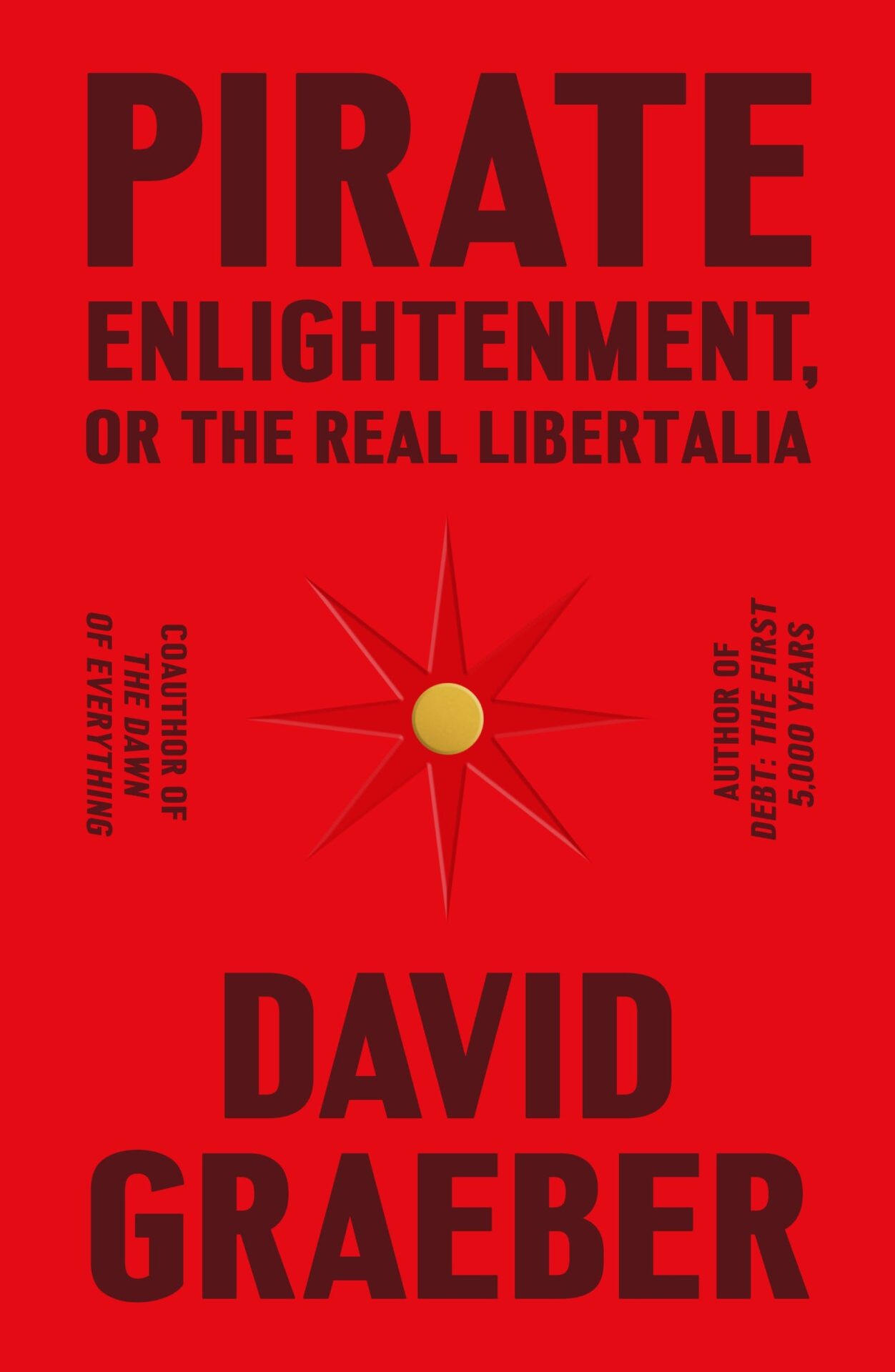The Pirate Philosopher: a Review of David Graeber’s Pirate Enlightenment, or the Real Libertalia
Columbia Journal of Literary Criticism
This is a review by Annelie Hyatt, published in the Columbia Journal of Literary Criticism
In the last of his publications, Graeber writes in Pirate Enlightenment, or the Real Libertalia about the role of pirates in developing some of the core tenets of the Enlightenment. He pulls from the ethnographic field research that he conducted for his doctoral thesis in Madgascar, beginning what he thought would be an extended essay that turned in the process into a short book. He wields a host of different accounts of the time period, contending with their contradictions and mythological slants to create a tentative narrative about the Golden Age of Piracy.
“Under the cover of the pirates, and the formal leadership of a half-caste pirate king, clan leaders and ambitious young warriors carried out what I think would best be considered their own pro-Enlightenment political experiment, a créative synthesis of pirate governance and some of the more egalitarian elements in traditional Malagasy political culture,” Graeber writes to close his introduction. “What is generally written off as a failed attempt to create a kingdom can easily be seen as a successful Malagasy-led experiment in pirate Enlightenment.”
It is difficult to separate the pirates from the eighteenth century from their cultural counterparts, a fact that Graeber immediately acknowledges. The most internationally relevant of these icons is arguably Jack Sparrow from Pirates of the Caribbean, a well-beloved Disney character whose trickster antics enable him to smoothly escape from conflict unharmed—all the while maintaining an dramatic illusion of drunkenness that contributes to his perceived weakness. In the manga One Piece, one of the most successful franchises of Shōnen Jump, pirates are the human embodiment of freedom and anarchy. Although pirates aren’t necessarily allied, their combined puissance rivals that of the government. Curiously, the reinstatement of the Pirate King in One Piece is rumored to bring about a new age of light to a time that was locked in darkness and deceit.
While both are works of fiction, their stories illuminates essential truths about the pirates of history that are easily dismissed as myth. First, Madagascar accounts confirm that pirates were engaged in establishing societies and facilitating trade. In the late seventeenth century, Saint-Marie was a place where pirates could “dispose of some of their booty in exchange for some of the comforts of home,” as well as trade with merchant ships from New York for liquor, gunpowder, weapons, fabric, and books, among other items.
It was also a society that was both organized and egalitarian, largely based on the governing strategies on their ships. While most pirate ships had captains, these leaders were appointed to their station by democratic vote and only took charge during battle scenarios. Pirates replicated these governance structures on land: Ratsimilaho, the self-appointed Pirate King who unified northeast Madagascar into a bona-fide monarchy, led a society that adheres quite well to our current democratic ethos. Moreover, pirate interaction with Malagasy locals during the eighteenth century facilitated the creation of a society in which women were socially mobile, influential economic actors.
The larger argument of Graeber’s book is that many of the Enlightenment ideas that society credits to a certain set of European philosophers are indeed not Western at all. In fact, many societies in the East were already beginning to form societies based on these Enlightenment values, leading us to the conclusion that the pre-Enlightenment societies were more progressive and politically innovative than we assume.
At times I found the book too conversational in its tone, Graeber’s light-hearted wit undermining what I thought to be a revolutionary argument that deserved seriousness and relevant academic vocabulary to match it. I also found myself frequently lost in his argument, unable to keep apace with the extended cast of characters in whom I felt only marginally invested. I wonder if Graeber’s choice to turn this piece into a book instead of an essay was the right one—although, that this is the last posthumous publication of this inimitable anthropologist has not escaped me and endears me to the book’s virtues, cognizant that flaws in its organization were ultimately remediable without drastically interfering with Graeber’s work.
If you are interested in reading Graeber, I would recommend starting elsewhere: Bureaucracy: The Utopia of Rules, Bullshit Jobs, and Debt: The First 5,000 Years are texts whose well-argued thesis and scrupulousness has made them essential reads for many intellectuals. However, Pirate Enlightenment, or the Real Libertalia shares in their common project of challenging conventional perspectives of society and revealing secret histories that are just below our collective skin.


